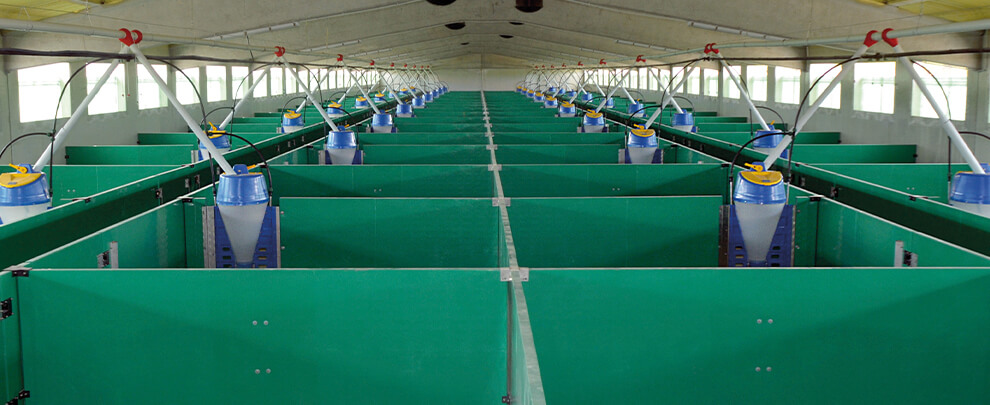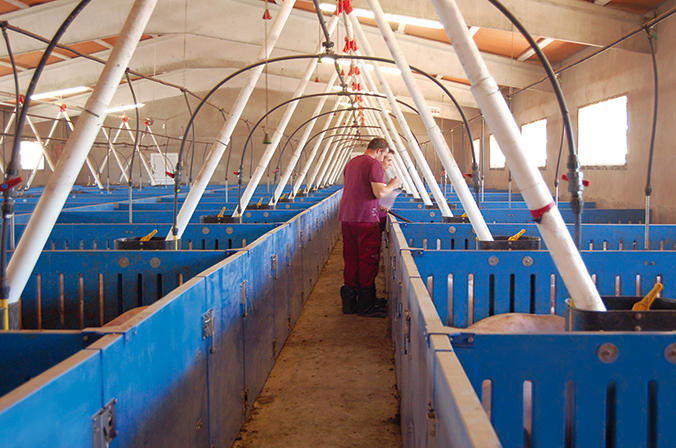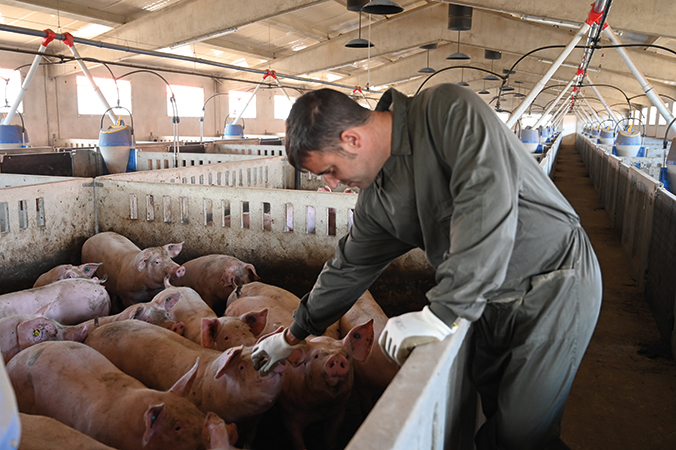Blog
Blog

What modifications will I have to make to my fattening farm?
13th March 2024 - News
Óscar Toledano. Rotecna Sales Manager.
As discussed in the previous article, Royal Decree 159/2023 was published on March 7, 2023. It established provisions for the application in Spain of the European Union regulations on official controls on animal welfare and amended several royal decrees. The decree applies to all new farms built after its application and existing ones from March 8, 2025.
We have already analysed in detail how the increase in the minimum free space required for animals from 85 to 130 kg may affect us, so now we are going to discuss other modifications that we will have to do at our fattening facilities related to environmental conditions, to adjust to the new regulations.
It specifies that continuous noise levels above 85 dB should be avoided and that concentrations of gases measured at animal head height greater than 20 ppm ammonia (NH3) and 3,000 ppm carbon dioxide (CO2) should not be exceeded. These should be recorded monthly. It is also specified that the minimum lighting intensity must be 40 lux or equivalent in LEDs for at least 8 hours a day.
We know that farms are less noisy than city traffic or the ring of a telephone (80 dB), that, with the proper installation, there is no problem in having a light intensity of 40 lux for 8 hours, and that the application of the best available techniques (BAT), according to Royal Decree 306/2020, It significantly reduces ammonia emissions inside the warehouses, so it should not be a problem to comply with the levels that are asked of us if we make correct use of the ventilation systems that we usually have. On the other hand, whether we will have to install systems for continuously measuring and recording CO2 and NH3 concentrations or only measuring them on a one-off basis for the monthly recording has not been clarified. The most logical approach would be for the level of gases in the pens to be evaluated continuously. In any case, the approval systems have not been established to determine which devices for measuring these parameters will be valid for the measurements to comply with the regulations.

Continuous noise levels greater than 85 dB should be avoided. Photo: Rotecna.
It is established that the pens must have adequate environmental control systems to prevent thermal stress of the animals, maintaining the temperature ranges established in the animal welfare plan that each farm must have. According to the law, the veterinary staff responsible for the farm must draw up this plan. It must include a description of the structural and environmental conditions of the facility, an assessment of risk factors for animal welfare, and an action plan with measures to be taken regarding the identified risks. It stipulates that corrective measures must be applied if the temperature values inside the enclosures exceed the established ranges.
It is also unclear whether we will need to install systems for measuring and continuously recording temperature and humidity to detect when the environmental conditions inside the facilities are outside the established range. Likewise, it is not detailed whether, in cases of extreme temperatures in which the animals suffer from heat stress, it will be sufficient to apply the usual corrective measures, such as improving the thermal insulation of the houses, installing equipment that improves natural ventilation, installing nests or thermal blankets, modifying the density of animals per pen, making adjustments in feeding, etc., or, in the case that such measures are not sufficient, we will be forced to install extra heating or cooling systems.
When in doubt about how to apply density reduction, we must wait for the ministry to clarify the points that raise the most questions. In any case, let us hope that; as it was with the adaptation of sow farms to group gestation and weaning at 28 days, this new regulation will increase animal welfare, which will undoubtedly result in an increase in productivity and make up for the effort involved in complying with it.

The new regulations seek to increase animal welfare. Photo: Rotecna.






